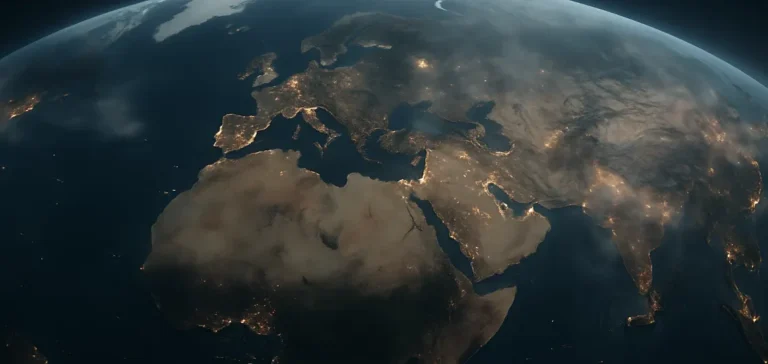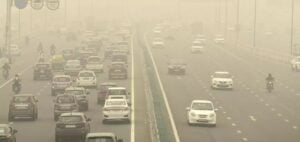Global greenhouse gas emissions continue to rise in 2024, hitting a new record of 37.4bn tonnes of carbon dioxide (CO₂). Although local emission reduction efforts are ongoing, particularly in Europe, an increasing share of pollution is outsourced through imports from third countries. This trend underscores a growing tension between the European Union’s (EU) stated climate objectives and the continent’s economic and industrial reality. Consequently, despite a decline in domestic emissions, the overall carbon footprint of Europeans remains significantly high.
Europe reports local reductions but imports massively
According to recent data from the International Energy Agency (IEA), European CO₂ emissions decreased by 2.9% in 2024, confirming a trend observed for several years. This reduction is primarily due to the accelerated adoption of renewable energies and progressive deindustrialisation in some member states. However, these figures do not account for imported emissions, which constitute a substantial portion of Europe’s total carbon balance. Thus, when including emissions induced by imports, Europeans’ actual carbon footprint remains elevated.
China and India at the heart of outsourced emissions
Emerging economies, notably China and India, simultaneously register significant increases in their CO₂ emissions, partly driven by European industrial and consumer demand. In 2024, China emits approximately 11bn tonnes of CO₂, remaining the world’s largest emitter, ahead of the United States and India. India, for its part, sees an increase of around 4%, reaching a historic high of over 3bn tonnes. A considerable share of these emissions results from manufacturing and industrial production aimed at export to Europe, particularly in sectors such as steel, electronics, and textiles.
Economic and ecological impact for emerging countries
This pollution outsourcing generates significant economic and environmental implications for emerging countries. In Africa, particularly in South Africa and Nigeria, emissions sharply increase due to intensified fossil fuel energy production catering to external demand. Brazil experiences a marked rise in emissions linked to deforestation and intensive agriculture, substantially driven by agricultural exports to European markets. The ongoing finalisation of the trade agreement between the European Union and Mercosur could intensify these exchanges, thereby exacerbating environmental pressures on the region. These economies must manage direct environmental consequences while seeking to sustain economic and industrial growth amid expanding trade.
The limitations of European climate policies
European policies frequently focus on precise local targets but face limitations due to structural dependence on imports. Although initiatives such as the Carbon Border Adjustment Mechanism (CBAM) are gradually implemented, their effectiveness remains uncertain. Thus, the European Union must contend with the economic reality of its reliance on industrial and energy imports while attempting to maintain its image as an international climate leader. This situation highlights a significant challenge for policymakers: reconciling stated climate ambitions with concrete economic constraints.






















